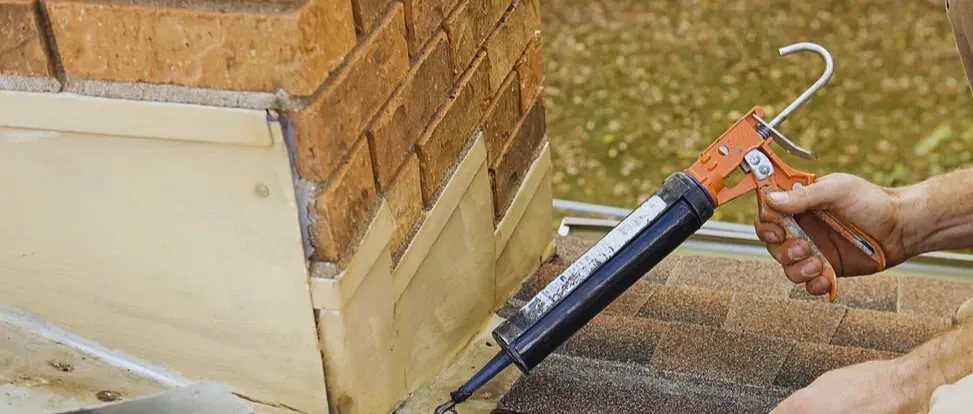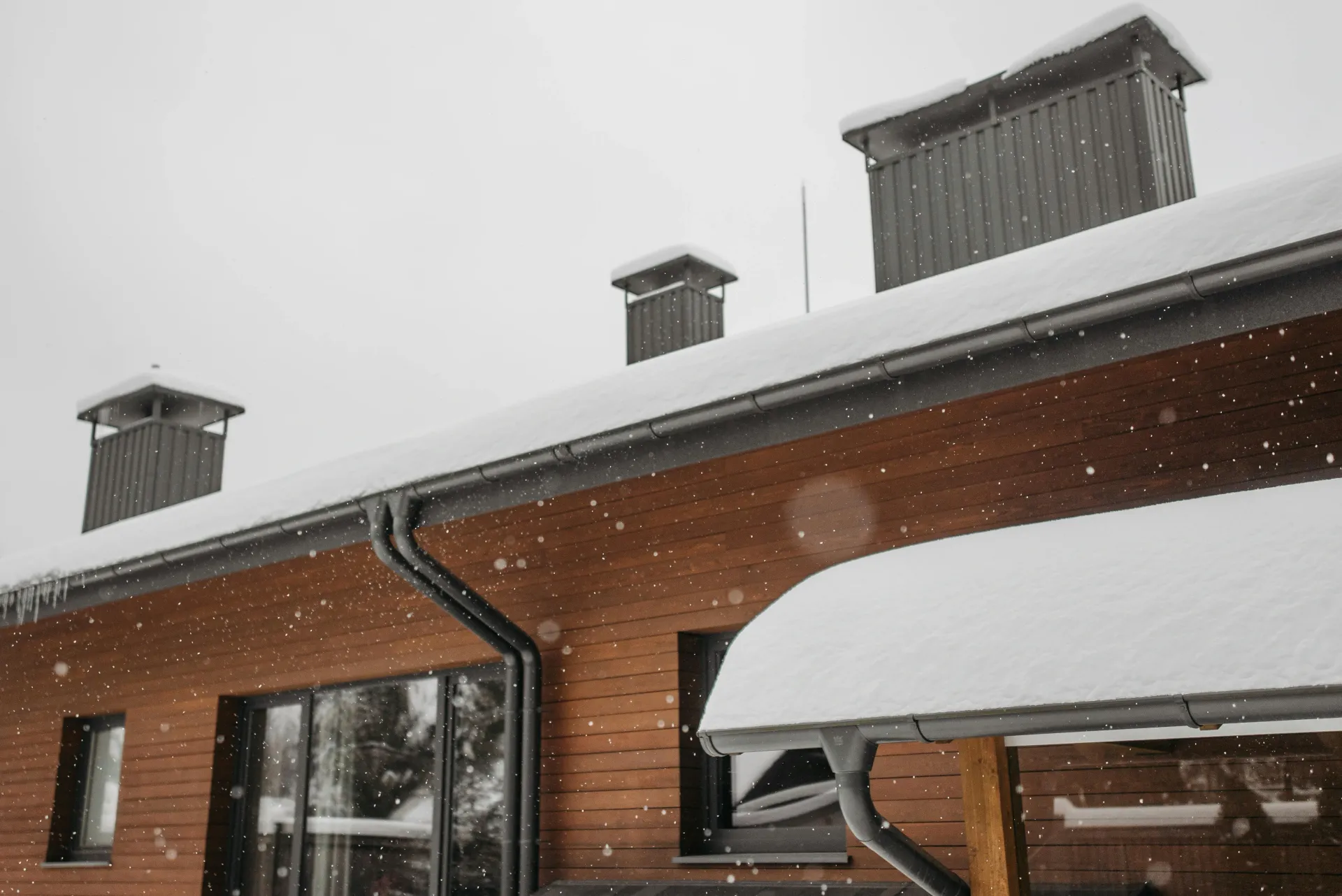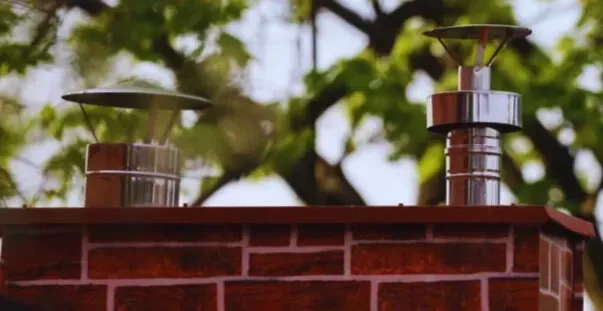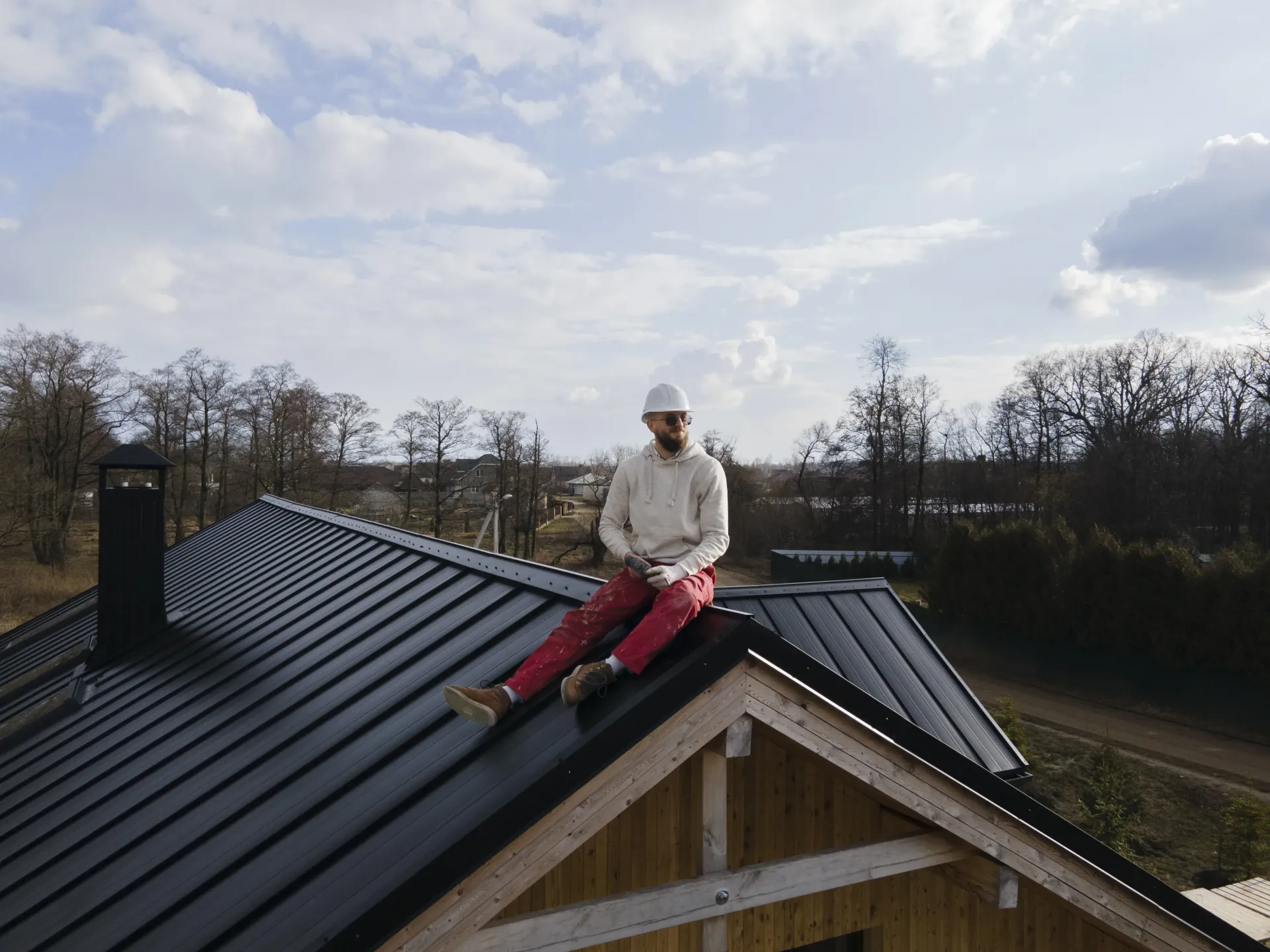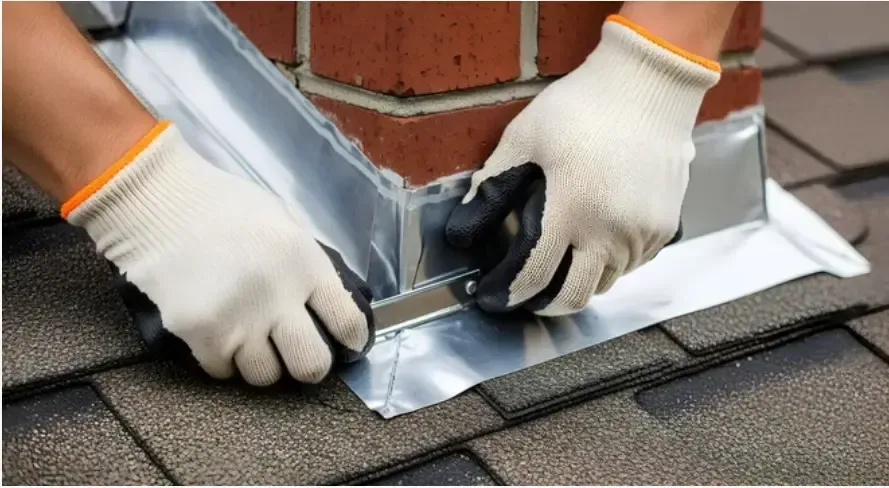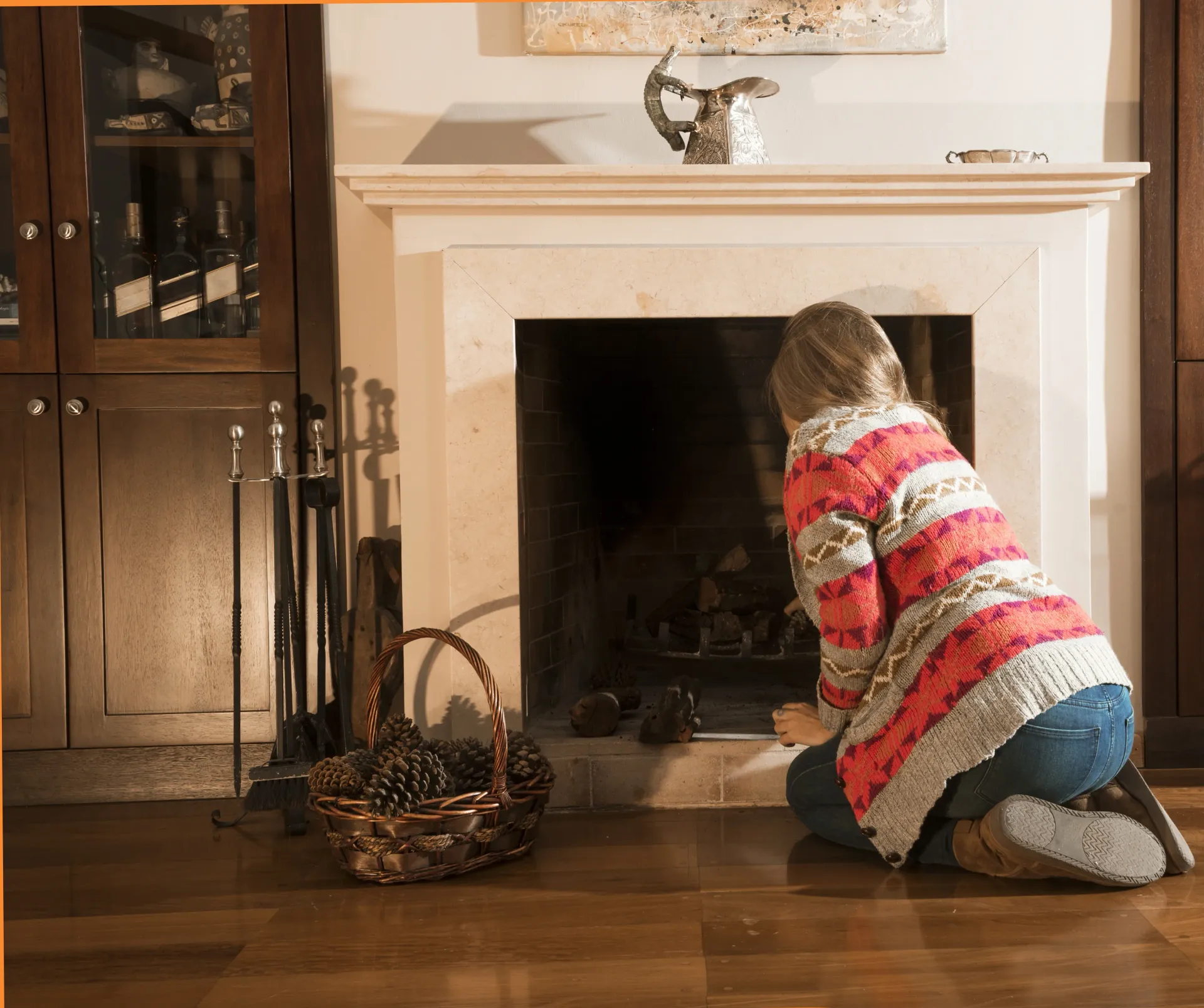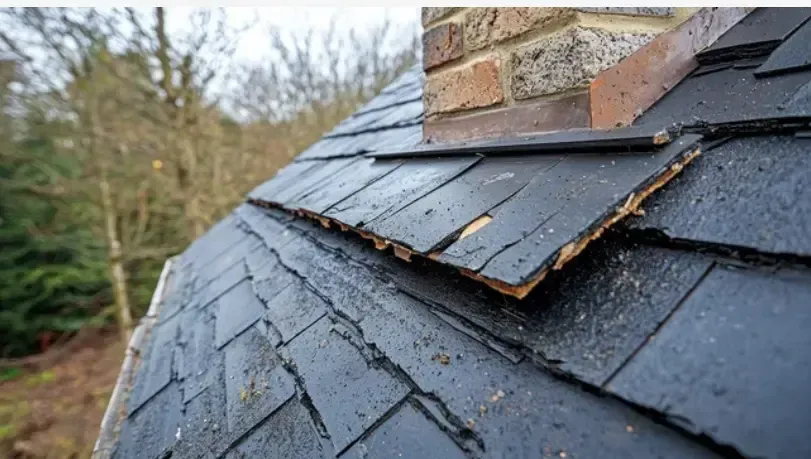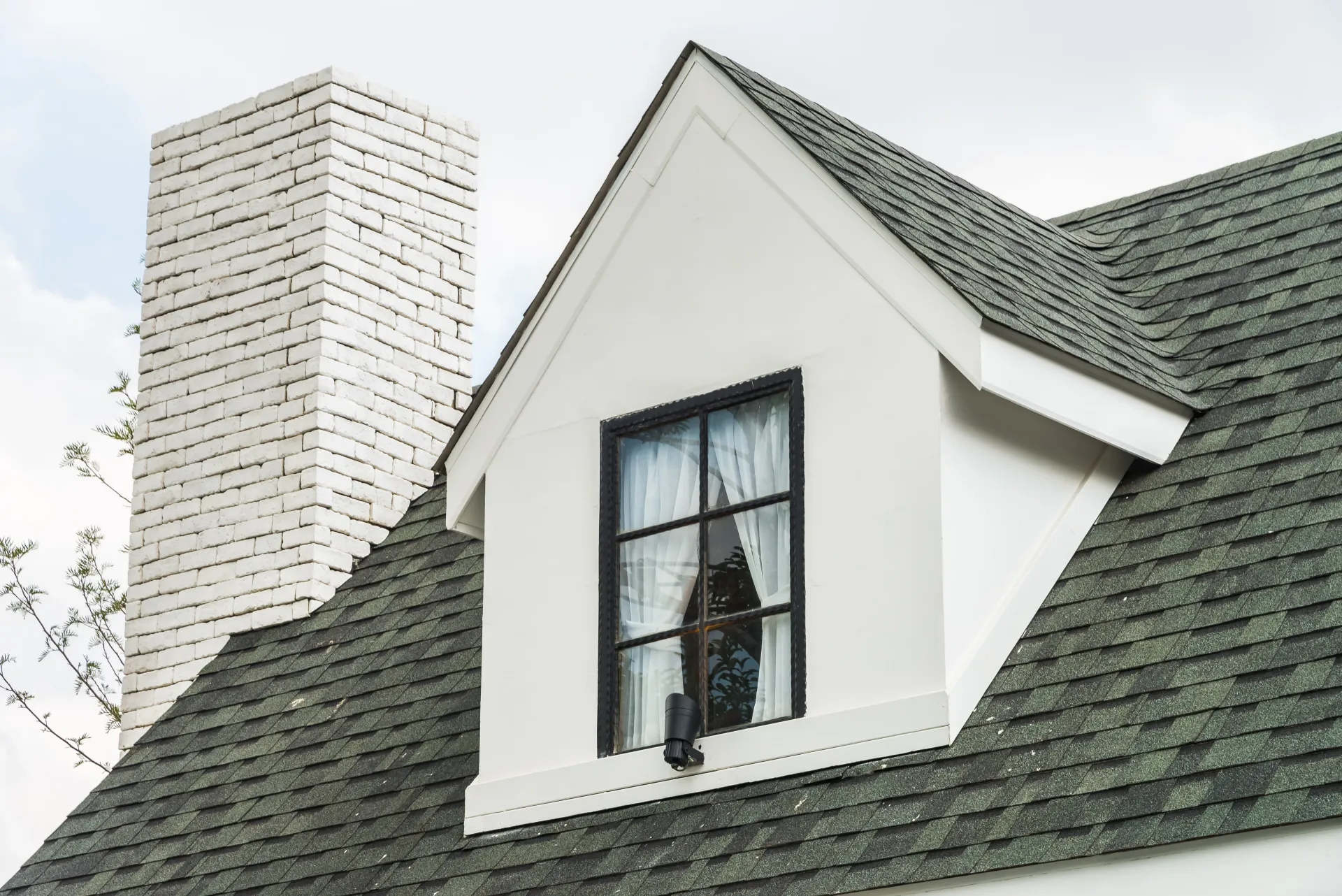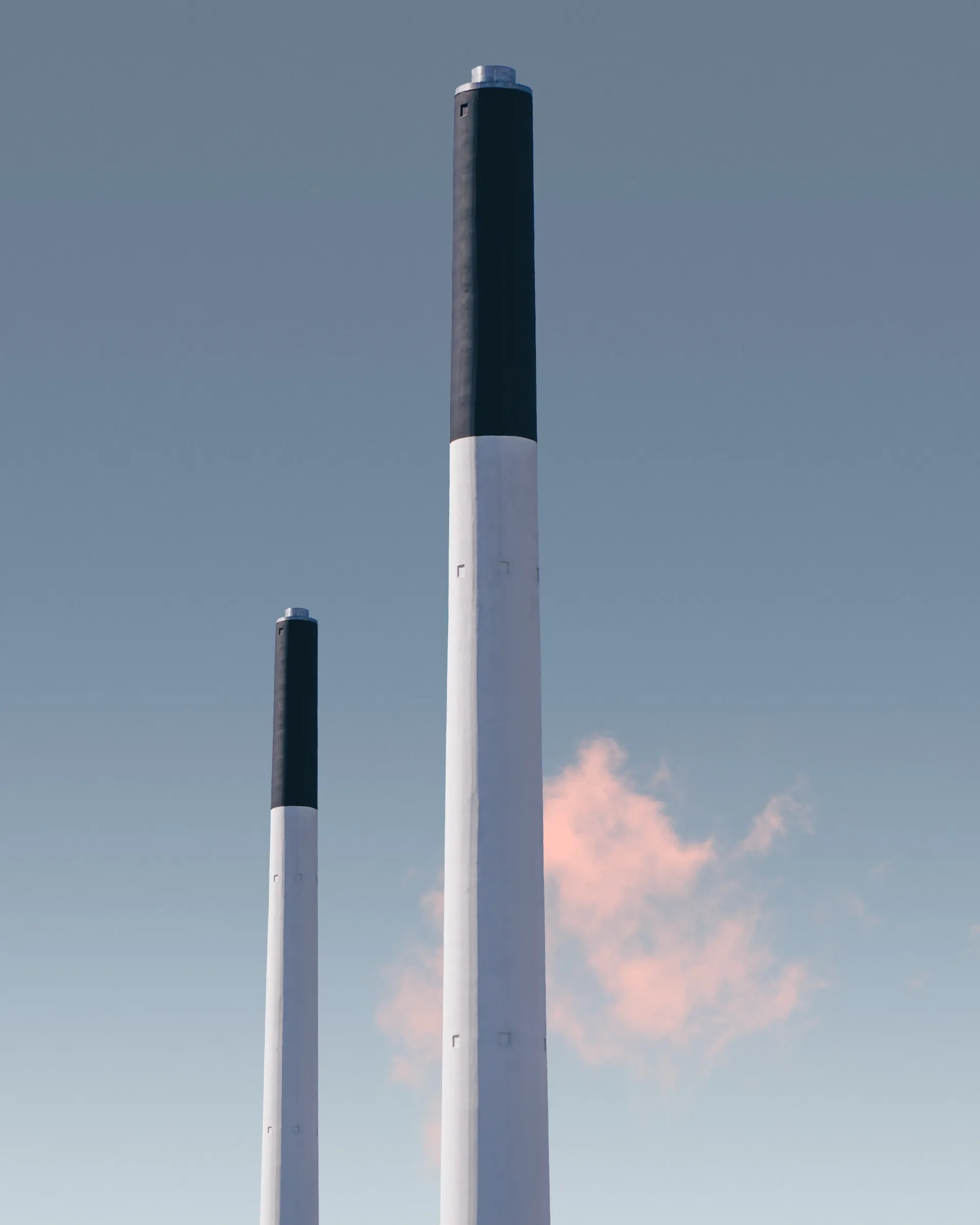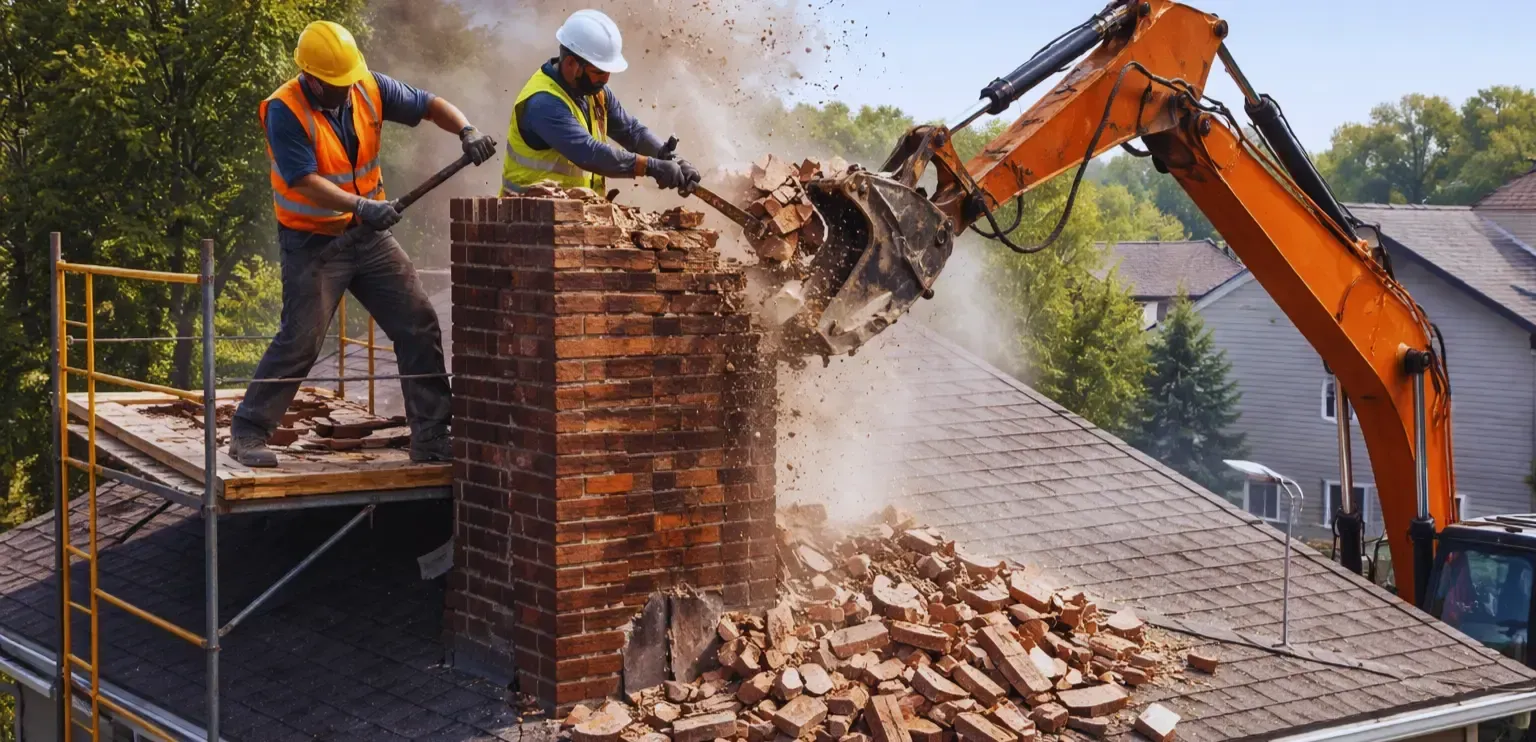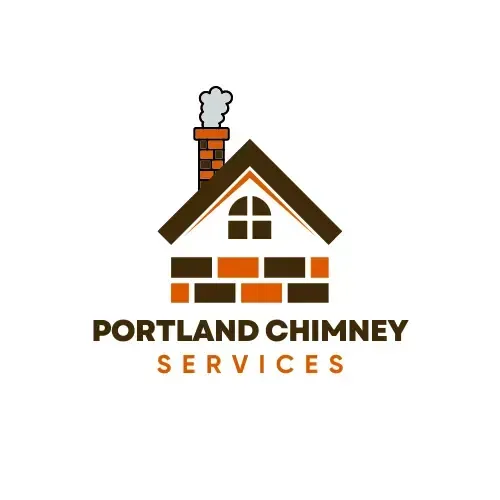Learn exactly what to do before your chimney inspection with this complete step-by-step guide. Ensure your home is safe and your fireplace ready for winter.
What to Do Before Your Chimney Inspection
A chimney inspection might not seem like a big deal—until it is. Whether you're prepping for the cold season or finalizing a home sale, taking the right steps before your chimney inspection ensures accuracy, saves time, and improves your home's safety. This guide gives you a full breakdown of what to do before your chimney inspection and how to set your fireplace up for success.
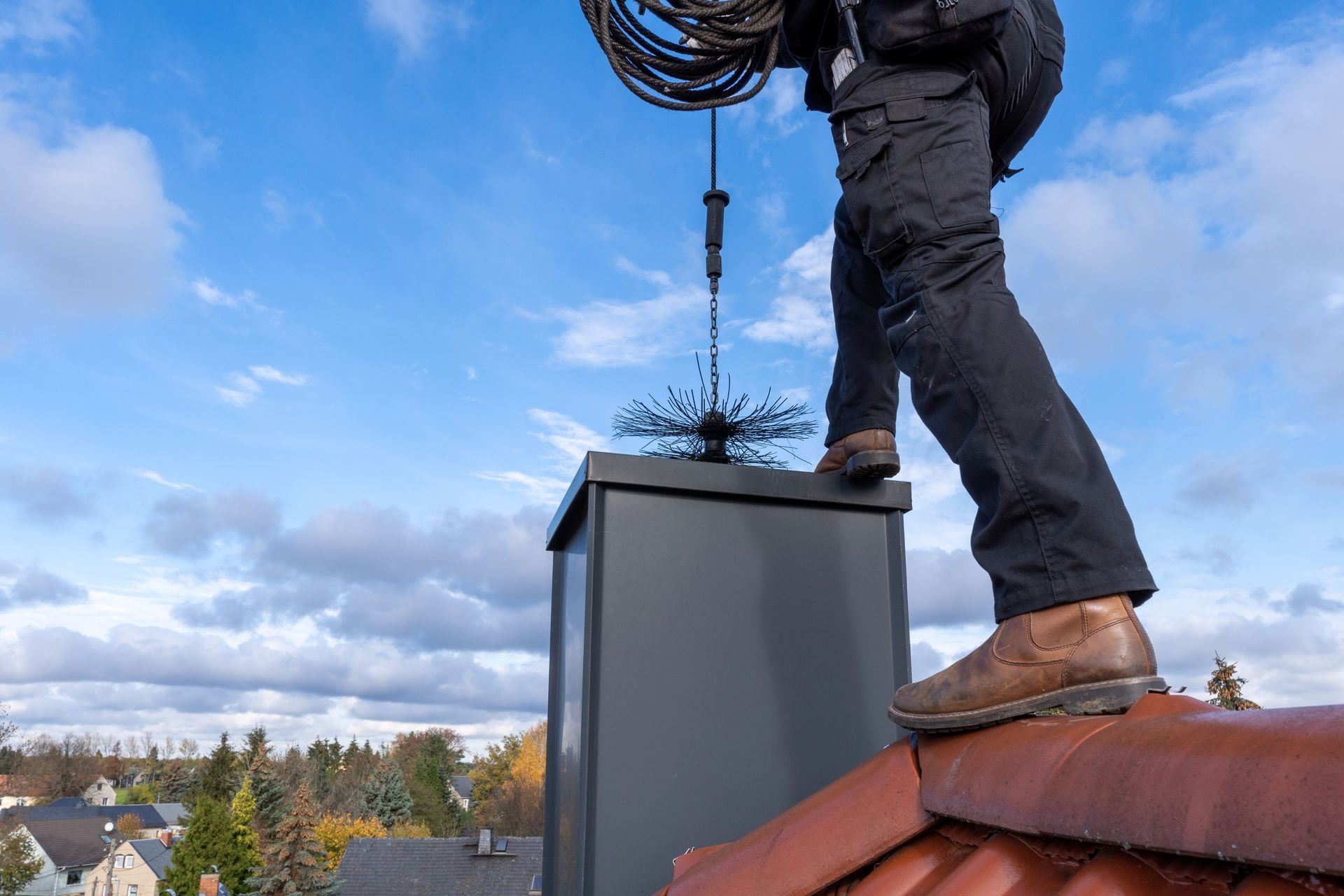
Introduction to Chimney Inspections
Chimney inspections are more than just routine tasks; they're vital for keeping your home and family safe. Over time, chimneys can accumulate creosote, suffer structural damage, or develop airflow issues. An inspection identifies these problems before they escalate into fire hazards or costly repairs.
Certified chimney professionals use specialized tools to assess both the visible and hidden components of your chimney system. Proper preparation makes their job easier—and your home safer.
Why Chimney Maintenance Matters
Fireplace-related house fires cause thousands of incidents each year. Most of them could be avoided with regular chimney maintenance and inspection. A well-maintained chimney ensures:
- Safe exhaust of smoke and gases
- Prevention of chimney fires
- Reduced risk of carbon monoxide buildup
- Improved energy efficiency
- Long-term durability of your heating system
That’s why chimney inspections aren’t optional—they’re essential.
Types of Chimney Inspections
Understanding the type of inspection scheduled helps you prepare appropriately:
- Level 1 Inspection: A basic check for chimneys in good condition with no recent changes.
- Level 2 Inspection: Required after changes like fuel type conversions, real estate sales, or chimney fires.
- Level 3 Inspection: In-depth analysis involving removal of parts of the structure if hidden hazards are suspected.
Your chimney service professional will let you know which type is necessary, but preparing well helps no matter the level.
When Should You Schedule a Chimney Inspection?
Here’s when you should definitely consider booking an inspection:
- Before winter: Prepare for heavy fireplace usage
- After a chimney fire or lightning strike
- When buying or selling a home
- If you notice smoke entering the room
- After a remodeling project involving your fireplace
Annual inspections are best—even if you rarely use your fireplace.
Benefits of a Pre-Inspection Checklist
Think of it as setting the stage for your inspector. When you do some of the prep work, your technician can focus on identifying and fixing problems. Prepping also ensures:
- Faster, smoother inspections
- Fewer surprises
- Better communication with the inspector
- Increased accuracy in diagnosis
And the best part? It only takes a little bit of time.
Clear the Area Around Your Fireplace
Remove any furniture, decorations, firewood, or rugs within a 3–5 foot radius of the fireplace. This gives the technician space to maneuver equipment, place drop cloths, and safely inspect the firebox and surrounding area. It also protects your belongings from dust and soot.
A clean workspace makes everyone’s life easier—and much safer.
Remove Ash and Debris from Fireplace
If your fireplace has leftover ash or charred wood, go ahead and clear it out. Use a metal shovel and bucket to safely remove cooled ash. Doing this allows the inspector to clearly see the fireplace interior, identify cracks, and spot buildup that may require cleaning.
Just remember: never vacuum ash, and always wait at least 24 hours after your last fire.
Ensure Proper Ventilation
Ventilation affects how well your fireplace operates and how safely it vents smoke. Check that all flues and vents are accessible and not obstructed by insulation, debris, or nesting animals. Open nearby windows slightly to allow air circulation during inspection day—especially if smoke testing will occur.
This step supports both your safety and the accuracy of inspection results.
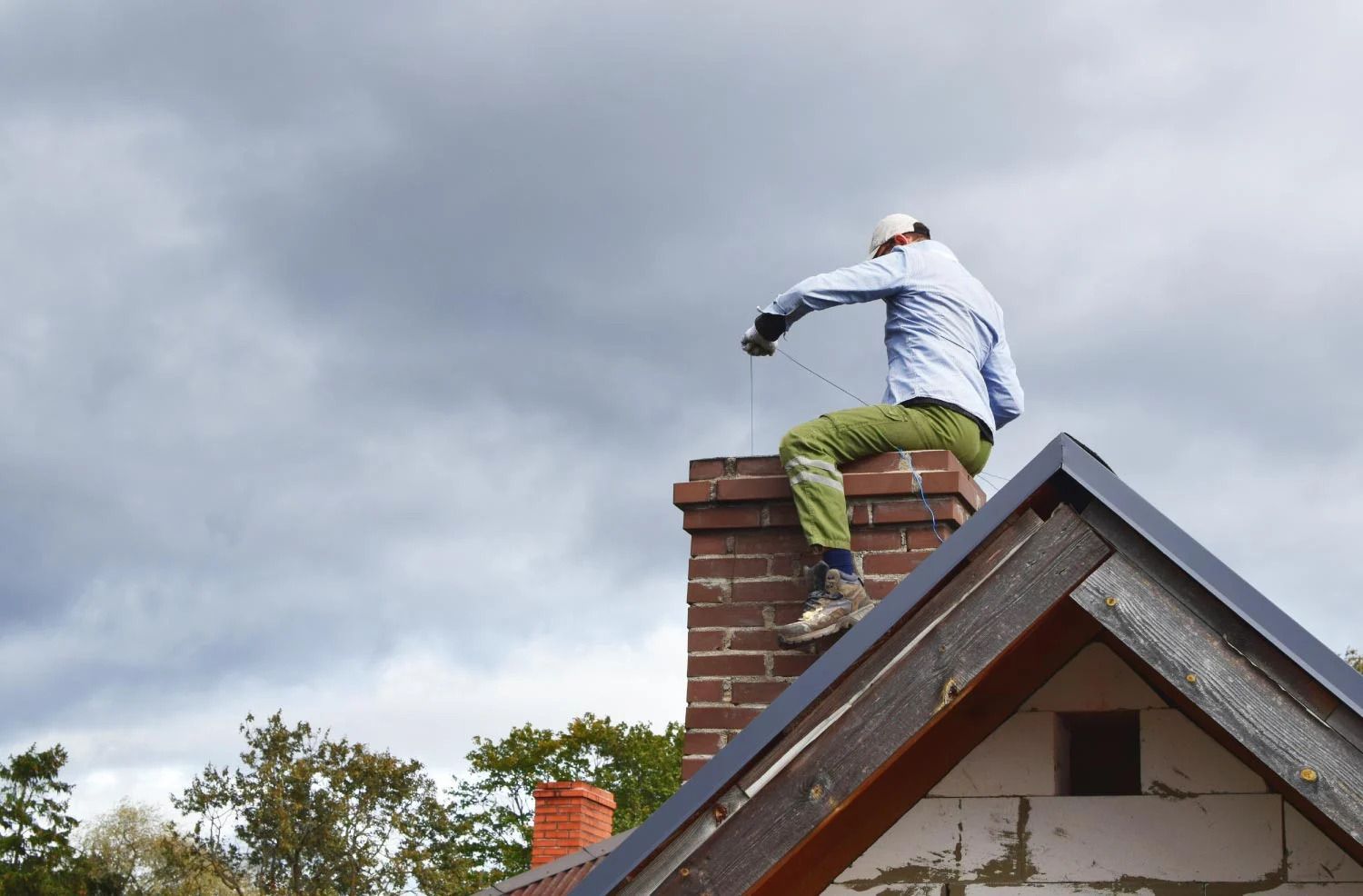
Secure Your Pets and Children
Chimney inspections involve ladders, tools, and sometimes loud noises. For safety and focus, keep pets and kids in a different room. Curious children or pets could trip the technician or come into contact with hazardous materials like creosote.
Create a calm environment so the work gets done quickly and safely.
Take Note of Unusual Fireplace Behavior
Before the inspector arrives, jot down any odd signs you’ve noticed, like:
- Strange smells (burnt, moldy, or musty)
- Smoke backing up into the room
- Excessive soot or discoloration
- Crumbling bricks or falling debris
Sharing this info helps the technician pinpoint problems faster. Consider these red flags as early warning signs.
Gather Documentation and Service Records
If you’ve had past chimney cleanings or repairs, have that paperwork ready. Documentation shows your commitment to maintenance and helps identify recurring issues. It may also affect whether certain repairs are covered by insurance.
Include any:
- Repair invoices
- Warranties
- Photos of past damage
- Insurance claims
It saves guesswork and time during the evaluation.
Test Smoke Detectors and Carbon Monoxide Alarms
These devices are your first line of defense if something goes wrong. Make sure they’re working properly and have fresh batteries. Although not part of the chimney inspection, they work hand-in-hand with fireplace safety.
If you don’t have a carbon monoxide detector near your fireplace, now is the time to install one.
Check for Visible Exterior Damage
Take a walk around your house and inspect the chimney stack. Look for:
- Cracked or missing mortar
- Leaning or tilting structure
- Water stains or rust marks
- Cracked crown or cap
Take pictures to show the technician if access is difficult. Sometimes, visible issues point to deeper internal problems.
Know What Questions to Ask the Chimney Inspector
Empowered homeowners get better results. Before your inspection, consider asking:
- How severe is the buildup or damage?
- What maintenance is urgently needed?
- How often should I schedule future inspections?
- Is there any waterproofing or sealing required?
- Do I need a chimney cap or liner?
Take notes! You’re paying for expert advice—don’t let it go to waste.
What to Expect During the Inspection
During the appointment, the inspector will use lights, mirrors, or cameras to assess your chimney. Depending on the inspection level, this may include:
- Looking for cracks, blockages, and creosote buildup
- Checking the flue, damper, and smoke chamber
- Reviewing the chimney crown, flashing, and exterior stack
Most inspections last between 30 minutes and 2 hours. Expect a full report with findings and recommendations.
Post-Inspection Follow-Up
After the inspection, review your report carefully. Understand what actions are urgent and which can wait. If repairs are needed, get them scheduled promptly—especially if you're entering the colder seasons.
Your chimney service provider should offer clear guidance, repair estimates, and possible maintenance plans.
How to Choose a Trusted Chimney Service
Choosing the right team for the job makes all the difference. Look for certifications, years in business, and local reviews. We highly recommend starting with Portland Chimney Service for trusted, reliable, and professional chimney care.
Contact a Certified Chimney Professional
Ready to book your inspection or get questions answered? Don’t hesitate—Contact Portland Chimney Service today for expert chimney care in your area.
FAQs
How often should chimneys be inspected?
Once a year is standard, even if you don’t use your fireplace often.
Can I clean my chimney myself before inspection?
You can remove ash and debris, but deeper cleaning requires professional tools and experience.
How long does a chimney inspection take?
Typically 30–90 minutes, depending on the level and condition.
What are common chimney inspection findings?
Creosote buildup, cracked flue liners, loose bricks, and animal nests.
Should I be home during the inspection?
Yes, it's best to be present to answer questions and understand the results.
Is chimney inspection covered by homeowners insurance?
Usually not, unless tied to a covered event like a fire or storm damage.
Conclusion
Knowing what to do before your chimney inspection can turn a stressful event into a simple, productive appointment. With a little preparation and a lot of common sense, you’ll protect your home, save money, and enjoy a safer, more efficient fireplace. Whether you're a new homeowner or a seasoned pro, regular chimney care is one habit that always pays off.
Need help? Reach out to Portland Chimney Service—the experts you can trust.
Links
